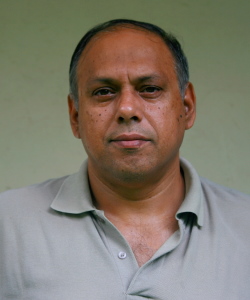Kazakhstan President Nursultan Nazarbayev has formulated a grand programme to create the pillars of a modern democratic state. The five broad areas of reform are the development of a professional executive, independent judiciary, government accountability, economic strategies and national identity.
These five reforms have been further sub-divided into various sub-components and 100 specific objectives have been detailed in order to implement the programme. A wealth of expertise both within Kazakhstan and from all over the world has been garnered to devise the strategy of 100 Concrete Steps.
If successfully implemented, these reforms promise to lay the foundation of a stable and enduring modern nation state.
Professional Civil Service
The first basic
requirement of any state is a body of individuals authorised to honestly and diligently implement orders, plans and programmes emanating from the national leadership. One of the most important reasons for the success of the ancient Chinese empires was the existence of a large, competent and professional bureaucracy selected on the basis of merit through examinations. These Chinese mandarins, as they were called, ensured the survival of powerful empires over the centuries. Some historians maintain that the decline in the fortunes of some Chinese dynasties was directly related to the decline of their bureaucracies. Today, all successful nations have large, effective and professional bureaucracies to manage most aspects of governance, civic services and economic well-being.
The concrete steps outlined in the 100 Steps programme seek to address the problems arising in the unregulated development and growth of the bureaucracy in Kazakhstan. The idea of merit and professionalism as the basis for recruitment and promotion is the most significant area of executive reform; the creation of a code of conduct, rules and procedures are necessary conditions.
Rule of Law
The dispensation of justice is one of the most fundamental duties of the state. No society can progress if it does not have a corruption-free, independent and erudite system of dispute resolution. The steps to create a professional judiciary, a modern justice system, police transparency and mechanisms for the arbitration of disputes involving foreigners are some of the highlights of the steps related to the judiciary. If successfully implemented, these reforms would greatly help ordinary Kazakh citizens. The international community, too, would be assured regarding Kazakhstan’s judicial independence and fairness.
Industrialisation and Economic Growth
The steps go into great detail in which the Kazakh economy could be boosted through industrialisation and general economic development. The stress is clearly on economic development, as this is correctly seen as being the basis for national well-being. The steps outlined promise to take Kazakhstan plans further to develop specific industrial clusters, create a fair and transparent tax system, develop entrepreneurship and make the country an important node in the Eurasian economic system.
Identity and Unity
The reform programme considers the development of a national identity and unity as crucial for Kazakhstan’s future. This is a critical concept and the key to a stable, viable state. One key concept is that of “Mangilik El,” or Eternal Nation. This theme is to be elaborated and projected through various means. The media, too, is to be enlisted in the task of strengthening national unity and identity.
Accountable State
Perhaps one of the most significant features of the 100 Steps is its stress on accountability of the state or government. The spirit of national pride and a sense of well-being cannot thrive in a situation where the state is conceived of being anti-people, opaque, corrupt and oppressive. The new steps seek to address these problems by encouraging transparency in government, minimal governance, citizens’ empowerment and the introduction of an open government.
Commendable Features
The best part of Nazarbayev’s 100 Steps programme is the systematic manner in which it has been conceived and is likely to be implemented. The programme has clearly been well and meticulously thought out. The inclusion of foreign experts and global experience in drawing up this plan is suggestive of great wisdom. Likewise is the decision to involve the parliament and the nation’s elected representatives in implementing this grand design. Presidential oversight coupled with grassroots participation is the best way to successfully implement a project of such dimensions and national significance.
Some Omissions
The development of national pride sentiments is a must for long-term viability of the nation state. While a number of steps have been outlined in the policy document, there is no mention of the development of a body of national literature and the arts, both of which are intrinsic to nation building. Great poets, novelists, thinkers and artists are the ones who create true national pride feelings and values that transcend those decreed by governments and political leaders. A nation learns, remembers and sustains its sense of one-ness through poems, songs, stories, philosophical writings, paintings and so on. It would be a great mistake to omit the development of intellectuals and artists in the nation-building process. It would be relevant to recall the works and impact of poets in the development of national sentiments in the great European, American and Asian powers of today.
Conclusion
The hallmark of a great leader is his foresight and ability to create conditions for the nation’s future prosperity, stability and growth. Short-sightedness in leadership assumes that the future will look after itself and that the leaders of tomorrow will learn by the example of the past. But this rarely happens; the lessons of today are seldom remembered. The glory and example of great leaders invariably fade, but strong institutions left behind by wise leaders endure and ensure the success of future generations. In Kazakhstan, we are witnessing the beginnings of a historic endeavour to create lasting institutions of state. If they succeed, the nation will have been placed on solid foundations for a long time to come.
The author is a national security analyst and a freelance journalist working in Greater Noida / New Delhi, India.

